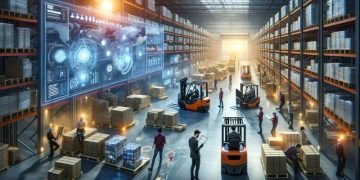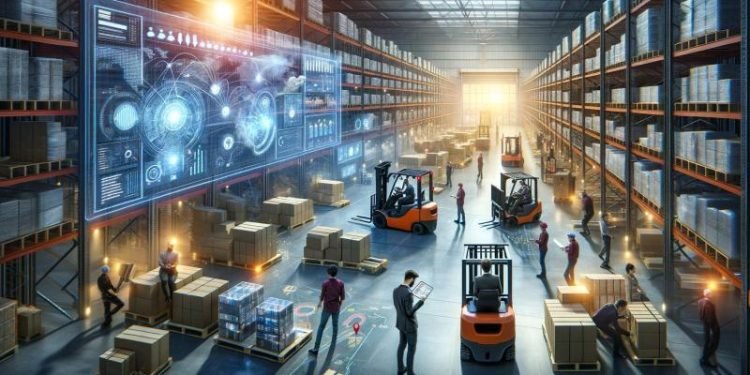In the fast-evolving global marketplace, the logistics sector plays a pivotal role in ensuring the seamless movement of goods and services. With advancements in technology, shifting consumer demands, and a growing emphasis on sustainability, the logistics industry is undergoing a revolution. This transformation is reshaping supply chain efficiency and creating new opportunities for innovation.
1. The Role of Technology in Modern Logistics
Intelligent Freight Systems
The integration of smart freight technologies has revolutionized operational flexibility. These innovations allow companies to optimize their planning, improve resource utilization, and maintain strict adherence to schedules. For instance, intelligent tracking and monitoring systems provide real-time data, enabling proactive decision-making and reducing shipping delays.
Blockchain: Enhancing Transparency
Blockchain technology has emerged as a game-changer in logistics. By creating immutable and transparent records, it addresses long-standing challenges related to trust and traceability. Companies can now track the journey of products from origin to destination with unparalleled accuracy, reducing fraud and enhancing consumer confidence.
2. Automation and Smart Warehousing
Autonomous Delivery Solutions
The adoption of driverless trucks and delivery drones is transforming last-mile delivery. Companies such as Amazon and JD Logistics are leveraging automated systems to reduce costs, minimize human intervention, and ensure faster delivery.
Fully Automated Warehouses
Smart warehousing solutions, powered by robotics and AI, are optimizing storage and retrieval operations. These facilities, like JD Logistics’ automated B2C warehouse in Shanghai, demonstrate how automation can significantly enhance throughput and accuracy.
3. Digital Marketplaces: Connecting the Dots
Digital platforms are bridging gaps in the logistics ecosystem. Online freight booking platforms, such as Freightos, simplify the process of comparing, booking, and managing freight services. These platforms empower businesses to make informed decisions quickly, reducing time and costs associated with traditional logistics arrangements.
4. Sustainability: A Core Focus
Green Logistics
Sustainability is no longer an option but a necessity. Companies are adopting green logistics practices, such as eco-friendly transportation modes and energy-efficient technologies. Initiatives like electric vehicles and optimized route planning are helping reduce the industry’s carbon footprint.
Circular Supply Chains
The concept of circular supply chains is gaining traction. This approach focuses on reducing waste by recycling and reusing materials, ensuring a more sustainable future for the logistics sector.
5. Challenges and Future Outlook
While the industry is embracing change, challenges persist. Supply chain disruptions caused by geopolitical tensions and natural disasters have highlighted vulnerabilities. To address these issues, companies are investing in reshoring strategies and modernizing infrastructure.
Looking ahead, the future of logistics lies in collaboration and innovation. Industry players must work together to develop agile and resilient supply chains that can adapt to evolving demands. The integration of AI, IoT, and predictive analytics will continue to drive efficiency and shape the industry’s landscape.
Conclusion
The logistics industry is at the forefront of a digital revolution. By embracing technology, automation, and sustainability, companies are enhancing supply chain efficiency and creating new opportunities for growth. As we move forward, the ability to adapt to change and innovate will determine success in this dynamic sector.
For businesses and professionals navigating the logistics landscape, staying informed and agile is key. At The Logistic News, we are committed to keeping you updated with the latest trends and insights to help you thrive in this ever-changing industry.























